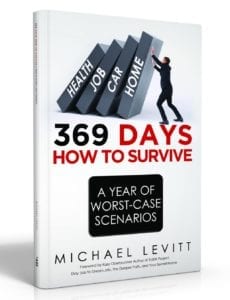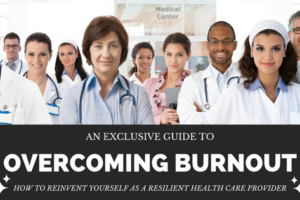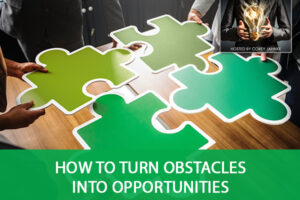
In one year, Michael Levitt, CEO of Breakfast Leadership, lost his health, his job, his car, and his home. He faced daunting circumstances and difficult challenges to reinvent himself and create an entirely different life for himself and his family. Michael shares how he used the power of his thinking to figure out what went wrong and why, and how he used the wisdom he had gleaned through adversity to emerge as the best version of himself. Learn how Michael discovered a resiliency that he feels you have within you to turn the toughest of times into the best of times.
—
Listen to the podcast here:
Thinking Your Way To Reinvention with Michael Levitt
How One Man Used The Power Of His Mind To Bounce Back From 369 Days Of Worst-Case Scenarios
 I’m with one of the nicest people and smartest leaders I know. I met him at a meeting. I was just overwhelmed by his genuineness, his kindness and his ability to express his thoughts about a period in his life that changed the course for him. This man’s name is Michael Levitt. He is the CEO of BreakfastLeadership.com. He’s also the Cofounder of Pre-Emptive Strike Consulting. Michael is a genius at working with people. I can’t wait for Michael to share his journey and what took him from down and out to up and coming. You’re going to like Michael’s thoughts on life.
I’m with one of the nicest people and smartest leaders I know. I met him at a meeting. I was just overwhelmed by his genuineness, his kindness and his ability to express his thoughts about a period in his life that changed the course for him. This man’s name is Michael Levitt. He is the CEO of BreakfastLeadership.com. He’s also the Cofounder of Pre-Emptive Strike Consulting. Michael is a genius at working with people. I can’t wait for Michael to share his journey and what took him from down and out to up and coming. You’re going to like Michael’s thoughts on life.
Corey, it’s great to be with you.
I’m so glad you could make it. I was at a meeting with you when I first heard your story. Would you be willing to share that story with my audience?
In 2009, I was leading a startup medical clinic. I started there in 2007. I was employee number one. I was tasked with recruiting physicians, hiring staff, and hiring medical supplies for a primary care clinic in an area that was underserved and needed to have more doctors. The town has around 25,000 people and at one point, it had almost fifteen doctors serving the community. Over the time, that number shrank down to about three. It was a huge issue and thankfully through government funding, through the province of Ontario in Canada, we were able to secure funding to hire and start this new medical clinic.
When you fail to delegate properly, you are robbing your coworkers of the chance to grow. Share on XIf anybody that’s ever been in a startup or if you’re a solopreneur or an entrepreneur, you know the number of hours that you ended up putting into your role. While I was doing that, I was burning a candle as I like to say it three ends: beginning, middle and end. I was not taking care of myself both mentally, physically or spiritually and it was taking a toll. Those around me knew it. Everybody that knew me was aware of it except me. I was rapidly approaching burnout. In 2009, that burnout state leads off to my year of worst-case scenarios. May of 2009, I was at the clinic and for five days I was having some chest pain because I thought that I’d pulled a muscle when I was mowing my lawn.
On that particular day, that pain was persistent because the only time it ever bothered me as if I lifted anything heavy with my right arm but the pain was persistent at this particular point. I asked the physician that was at the clinic to take a look and I say, “I’ve been having discomfort. I thought I pulled a muscle so I figured to get a requisitioning, get an X-ray and see what’s going on.” He listened to my heart and he thought, “We’ve got the EKG equipment here. Let’s go ahead and get you hooked up.” Here I am getting hooked up to an EKG machine in my clinic. At this particular point, a lot of people think, “Are you scared? Are you freaked out because you have an EKG unit hooked up to you?” At that particular point, I was more embarrassed about taking my clothes off in front of my coworkers than anything else. They were laughing and having a good time like, “Boss is stripping for us.” All the harassment jokes were coming out and it was a funny time for them and for me too, although I was quite embarrassed at the point.
After they ran the tests, they looked at it and they didn’t like seeing the results. I thought, “Maybe the leads weren’t hooked up right. We’re going to do this test again.” They hooked everything back up again, ran the test again, got the same results. They sent the results to Dr. Gina at Hôtel-Dieu Grace Hospital in Windsor, Ontario. After a few minutes, Dr. Gina called back to the clinic and advise the doctor to tell me to get my butt to the hospital right now and do not drive. That led off a week’s stay at the hospital. I had had a heart attack. I was 40 years old at the time. A 40-year-old should not be having heart attacks. For those in the medical industry, the heart attack took place in the left anterior descending artery. In cardiology world, it is referred to as the widow maker which means if people have a heart attack and blockages in that artery, they don’t survive. Thankfully, it’s years later and I’m still here. I’m very thankful for that. That kicked off my 369 days and what transpired after that was catastrophic.
Seventeen weeks after my heart attack, I was on medical leave for that period of time. Thankfully I had short-term insurance coverage so the bills are getting paid and I was able to recover. I went back to a job that I no longer had. The organization wanted to go in a different direction. Here I am seventeen weeks later from a heart attack and now without a job. This is 2009, so not very far after the economic recession in 2008. That area across the border from Detroit, Michigan. As we all remember, both the US and Canadian governments had to bailout the auto sector. At least two of those organizations, GM and Chrysler, would’ve gone bankrupt and gone out of business if the government didn’t step in to help them navigate those choppy waters. The area was not strong for jobs anyway, but it was devastated because of the economic recession.

Way To Reinvention: To go about things differently, make the necessary changes in order to not put yourself in the situation that you were in before.
It took a long time for me to find a new job and I ended up requiring relocation to Toronto. I did not want to come to Toronto. I had already worked in a big city. In the ‘90s, I worked in Chicago but I didn’t have an appetite to work in a huge city again. Necessity came into play and I needed to find work so I ended up finding a job in a healthcare role. My parents wanted to have me committed. They’re saying, “You’re going back to a healthcare role that nearly killed you. Why in the world would you do that?” At the time that I had away, I knew that I was going to go about things differently. I was going to make the necessary changes I need to make in order to not put myself in the situation that I had found myself. I was into the role about six weeks. I was in a meeting with the director and my phone rang and it was my oldest daughter. At that time, she would have been almost ten so she’s crying uncontrollably. I can barely understand her and finally was able to gather that the bank had repossessed our family vehicle.
When you’re on unemployment, you don’t get full pay. Being off as long as we were in unemployment and not being able to cover all the bills that you end up doing, we had to make choices. Those choices were one, we need to eat. I also need to be able to buy the $700 a month of medications that I was now taking because I am now a cardiac patient. I didn’t have insurance coverage because I was unemployed. We make choices and we chose medication to keep me alive and food to be able to sustain the family. We did work with our creditors. If anybody ever goes through a situation like this, one of the first things you need to do is contact your creditors, your mortgage, your car loans, credit card companies. Contact all of them and let them know your situation. All of them are flexible. They’ll work with you because they want to get paid and they understand that things happen and these organizations did as well.
Unfortunately, the time ran out. There’s only so much time that they can do it and that time had much run out. Of all the losses that I had in that experience, that was the one that bothered me the most because I wasn’t home when it happened. I was in Toronto and the family was still down in the Windsor Region, so it was four hours away. It was a very powerless feeling for me. I have my kids see the family vehicle be towed away. Even to this day, I don’t talk to them about it, but I know it was a traumatic experience for everybody involved. Thankfully we had a second vehicle that was paid off, which I had up in Toronto. We were a one-car family for a bit. Fast forward to May of 2010, we found a place for the family to move into. We moved and I’ve said this many times. If I had the choice of having another heart attack or moving, I would strongly consider the heart attack. I despise moving. It is painful. We had hired movers to pack up and unpack our stuff in our new place. Even then, it’s still traumatic because you have so much stuff and it’s such a disruptive thing to happen in your life. I don’t shake when I see a U-Haul truck anymore but I still look at it with disdain going, “I don’t like moving at all. It’s not a fun thing.”
We get everything up to the new place. As we’re unpacking and setting things up, beds and all of that, we discovered that we had left behind the bunk bed ladder for our daughters’ bed. That’s still in the house. I was planning on going back to Michigan where my brother lives to visit him. I said, “I’ll go visit my brother. Then on the way back to Toronto, I’ll swing by the house and grab the ladder and anything else.” The house would have been empty at that point so I can look around and see what else did we forget because you always end up leaving something behind. I’ve had a good visit with my brother and then I went to the house to grab the ladder. I went to the front door and opened up the screen door and I saw the largest padlock I’ve ever seen in my life. There are metal things that sealed the door shut and there was a foreclosure sign on the door. In a period of 369 days, I had a heart attack that should have killed me. I lost my job during the economic recession. Our family vehicle was repossessed. Finally, the home that we had owned was in foreclosure. That is a very difficult thing to go through. At that moment, when I saw the note and saw the lock, I said a quick prayer over the house.
You truly do not understand how resilient and capable you really are. Share on XAt that particular moment, it was the greatest amount of peace that I’ve ever felt in my life. I’m so relaxed and calm. I could hear the birds chirping. I could feel the breeze in the air because it was a late spring day. During the day it was quiet. It was just such a peaceful serene moment which is so opposite what people would experience because they will see a foreclosure sign on their door and they know they can’t get into the house. That can be a traumatic experience. We had already moved out and we were getting ready to list the house in a couple of weeks to try to sell it. We didn’t have to do that because the bank decided that they were going to do that for us. After experiencing all of those things, the big takeaway for me was, “I have survived so much in such a short period of time. I knew that this was an opportunity for me to reinvent myself and start thinking about how I think.” What’s my approach to life? What’s my belief system? Why do I believe that? What were the external conditions and internal thoughts that led me to that year? What do I need to change to make sure that it never happens again? That’s what I’ve done since then.
The number one thing that successful thinkers do is they take a look and say, “What is it in me that caused this situation and what does this situation to require of me?” I’m very proud of you for getting through that. One of the things that are important is that you described most people’s worst fears, major illness and major financial loss. Many people, as you know, have jumped out of windows even over the fear of it happening, let alone when it happens. Can you give me a sense of what your life looks like now? Tell me what a typical Michael Levitt week looks like.
My life now is amazing. I have my health, I have the employment, I have a vehicle, I have a wonderful place to live. My daughters are all a decade older. The thinking component of it is crucial. Whatever situation I face, I think it through and go, “What’s causing this? What’s going on?” Reinventing my life and changing my thought process and changing how I approach life was crucial for me to rebound from that horrible year and design a life that is amazing in a role that I love doing. I help people with their own stress and burnout prevention so they can focus on what matters most in their life and being able to just enjoy every moment and every day as it comes up. There are challenges and adversity. However, how I approach it is completely different now than it was a decade ago.
I look back at that time and I see photos of myself during that period and I can see it in my eyes. I don’t beat myself up over this, but I do look and I go, “That is a completely different human being than who I am today and I’m thankful for all those things happening.” Another thing that shocks people is that I’m thankful. If that mini heart attack didn’t happen, the blockages would have continued to get worse and I wouldn’t be talking to you right now. I’m thankful that happened and it happened when it did and where it did. I was able to get the right care to rebuild myself from the inside out.

Way To Reinvention: Establishing personal boundaries in your personal and professional life is absolutely crucial because you can’t serve from an empty glass.
One of the things that I’ve seen as a pharmacist is that sometimes people think that a given event is the end of the world. I’ve watched people run into these periods where their life just seems to be falling apart. Fortunately, I had been doing it long enough that I’ve also seen them three years later or five years later. The big takeaway that I got from your story and I’ve got from my customers is that there’s this internal story playing and what you did is you changed the story that you were telling yourself. Can you expound on that a little bit? What does that story look like in Michael Levitt’s head these days versus before?
This is as simplistic as I can make it. Seek to understand others’ points of view when you’re engaging in conversations or potential conflict or negotiations. Seek to understand what the other party’s interests are. Go through life with an approach of win-win. I want to win-win with people. It’s not a case of I want to win at the cost of somebody losing. It’s not a sporting event. At sporting events, someone is going to win and someone is going to lose. That’s how it’s designed. For me, it’s having that win-win attitude and understanding how can this workout where it’s a win-win. If it’s not a win-win, then it’s not now or maybe not ever type of situation where you say, “This is not going to work out. Let’s agree that this won’t work out and move on,” whether it’s a negotiation or a hire, you name it. Compare that to a decade ago where I was so driven. This happens a lot with people who suffer from burnout. They tend to be very driven and very successful and they end up burning out because of it. I was very driven.
I had a mandate that I misinterpreted on what I needed to do from the medical clinic standpoint. I wasn’t taking care of myself. I wasn’t putting boundaries around my life and protecting myself and saying, “I’m not going to be checking emails from 6:00 AM to 11:00 PM, seven days a week.” I’m not going to do that but I did. I didn’t have those boundaries around me. The biggest takeaway is establishing personal boundaries in your personal and professional life. It’s crucial because you can’t serve from an empty glass. I know a lot of people use this analogy as well as. When you’re on an airplane and they’re giving you the instructions, if the oxygen masks drop, you’re supposed to put your mask on first because you can’t help somebody if you can’t breathe. In my life, I was breathing but it wasn’t breathing and now I do. A big takeaway is just making sure that you have personal and professional boundaries in your life to protect yourself so that you can be the best version of yourself.
Please talk to me a little bit about your values system now. What things are important to you now at a survivor’s perspective versus a thriving business person’s perspective when you’re in the middle of burning the candle at three ends?
If everyone is working in their sweet spot, everything else gets better. Share on XFor me, it’s being in tune with my body both mental, spiritual and physical. Do a daily check-in and go, “How am I feeling? My back is a little sore. Maybe I slept wrong. I’m feeling a little bit fatigued. What did I eat yesterday? When was the last time that I did some exercises?” All of those things. Do a check-in and keep on top of how you’re feeling on a day-to-day basis. I’m a huge fan of journaling. It’s beneficial for people. It doesn’t have to be eighteen pages long every day unless you like writing that much, then go for it. That’s up to you. I like keeping tabs on how my days are going because I can look back over the last couple of weeks and engage on how am I feeling. If I noticed some patterns, then I’ll see, “I need to do something.”
Case in point. I took the month of December 2018 off from work. It was long overdue and it was something that I needed to do. I had sensed before the end of the summer of 2018 that my fall was going to be abnormally busy with a lot of podcasts interviews from my own show, for client calls, for conferences, for speaking, you name it. Fall tends to be a busy time for me historically. I looked at it and go, “I need to build in some breaks into this. When 2019 rolls around, I can enter into the year refreshed and full of energy.” I knew that this 2019 was going to be extremely productive and busy and have a lot of things going on. I wanted to make sure that I was my best self to be able to do it.
For the entrepreneur and the business owner that is in the middle of launching their business or their businesses growing and booming, the art of delegation is crucial. You need to delegate some of the things that you’re doing as best as you can. I know for a lot of small businesses, individuals and whatnot, that has a cost associated with it. You have to figure out how much are you spending time on certain endeavors and figure out what your hourly rate is. If you’re doing something like posting something on social media and you’re spending three or four hours a day on it, it was$50 an hour. That’s $200 an hour I’m spending on social media. Would I pay that or could I do something different to get those same posts out where it doesn’t require me to be on that social media channel?
That was an exercise that I did. I’m like, “I need to somehow automate something.” I use an automation tool. It’s not exactly cheap but it works and I’m able to schedule content in batches. If I see an interesting article or something that is beneficial for people to see, then I can put it and schedule it. For December 2018, for example, I more or less wasn’t on social media at all other than popping in from time to time to see if something was going on. If you look at any of my social media channels, it appears that I was quite active, which I was, but that was all scheduled content that I put in early October 2018. It was every day feeding something.

Way To Reinvention: We can only improve our life in four ways – do something that we’re not already doing, do more of something, do less of something, and stop doing something altogether.
The content was still out there. People were engaging with that. They were seeing it. I would comment on something if someone asks me a question or whatnot. I wasn’t dormant or hiding from it but I took a lot less time on it. The key takeaway for any business owner is to look for ways to do less work. Look for ways to delegate or delete the stuff that you’re doing because it’ll get you more time. Everyone is trying to find more time and we all get the same number of hours in a day. How do we spend it? What are we doing? Is it moving things forward or are we just doing something because everybody else says we need to do it and the fear of missing out kicks in?
You bring to mind two thoughts. One is by Jim Rohn that says, “Work harder on yourself than you do on your job.” Brian Tracy used to talk a lot about prioritizing your to-do list and look at what can be deleted. We get caught up in the idea that as business owners, as entrepreneurs, as people who are supervisors, everything is up to us. Our name is on it so we have to do X, Y, and Z. What happens is that we lose focus on what we were put on this Earth to do. How many times have you heard of a business person say, “I’m so busy working in my business that I can’t work on my business?”
It happens all the time and the Rohn and Brian Tracy quotes are spot on. The version of me years ago ignored both of those suggestions. I was lousy at delegating. I had staff that I could delegate work to, but I felt that it would be better for me to do it because I can do X, Y, and Z better than they can. That’s making two mistakes. Number one, if you’re doing X, Y, Z, you ended up doing A through Z and that’s not good. You’re robbing your employees and your teams the opportunity to grow. As an employer, boss or leader, one of our hugest mandates is to grow future leaders. We’re only here for a period of time. Some longer than others but at the end of the day, you want to make sure that you are growing people to be leaders of their own, in their own design, in their own way, in their own style because we’re all unique. We all bring separate gifts to the table. If you’re not delegating and allowing people to do other things, then you’re robbing them the opportunity to grow.
For me on delegation, the pendulum has swung in a completely different direction. Before I wouldn’t delegate anything. Now I’m of the opinion that if it lands on my desk and someone comes to mind that could do it besides me, I’m going to let them do it. Unless I’ve over tasked them with other things and they don’t have the time or capacity to do it without burning them out. The last thing I want to do is to burnout out other people. That’s the last thing you want to do. A crucial component is focusing on yourself, making yourself better, strengthening your strengths. Look at things at least a couple times a year. Look at your calendar and look at the things you’ve done in the last six months. Pick something that you’re not going to do anymore in the next six months. You’re going to say, “I’m going to stop doing that.” If you do that periodically, you’ll get fine-tuned on what you should be working on your business and on your life and not so much deep in the trenches on it.
Job offers don't land in your lap; you have to get yourself out there. Share on XWe can only improve our life in four ways. We can do something that we’re not already doing. We can do more of something or the most important too is that we can do less of something or stop doing something altogether. I’m a perfectly healthy 50-year-old guy. I’ve got a wonderful person in my life who comes and plows my driveway when it snows. He goes ahead and mowed my lawn because as you said, I can pay him less to do those things so that I can add value at a higher rate to my audience. It doesn’t mean I love writing the check at the end of the month, but it does mean that I’m using my time wisely and those are hours that I will never get back. Either I spend them in my driveway or I spend them creating content that hopefully helps a whole world of people.
You’ve created a job opportunity for somebody to do the work that they’re gifted and skilled in and have the equipment to do it. Having shoveled snow on the areas that we live in, we tend to get that. Neither of us is in Arizona or Southern California so we get snow. To be able to have somebody take care of that for us is a wonderful feeling. It buys you back time so you can do the things that you’re gifted in to be able to help humanity. If everyone is working in their sweet spot, everything gets better in where we work, the people we deal with and the products and services that we buy and consume. It all it gets better because if everyone is working at their optimum state, the quality of work just naturally gets better.

369 Days: How To Survive A Year of Worst Case Scenarios
I was thinking that the reason I started hiring this individual is because I couldn’t do it well. I got a plow for my truck and then I had to get my truck fixed. It was dented because I bang into a tree. I could have paid him for a whole year for what I had to fix the truck for. If people will see this interview and a story like yours, they’ll say, “That’s fine for Michael Levitt, but I’m stuck.” They want to tell themselves this lousy story about, “Somehow some way the stars aligned to help Michael pull out of this dilemma that he was in.” Can you tell me a little bit about the obstacles that you faced along the road, the 369 Days and the reinvention of Michael Levitt, BreakfastLeadership.com?
For me, it wasn’t star aligning. It’s a case of me grabbing the stars that I needed to have and aligning them myself. Luck exists but I don’t look at it as luck. It’s preparing yourself and being in the right place at the right time because you’ve prepared yourself to be at that spot, at that point. If you’re sitting on the couch expecting something to land in your lap, it might be a ceiling tile or it might be somebody throwing something at you. Job offers don’t land in your lap. You have to have yourself out there. You have to be in the game and that’s a life lesson for all of us. Be in the game.
The obstacle I faced was getting back to health because that heart attack knocked me on my butt pretty hard. Changing how I eat and how I took care of myself was a big step. After the job loss, finding a job was not easy. There was an economic recession. A lot of the jobs just weren’t available, especially at the level that I was at. I don’t talk about this in my book, but prior to me getting the healthcare job up in Toronto, I took a part-time job working for an IT firm making minimum wage. I was not making minimum wage. There are a ton of people that are making minimum wage and I know it does not cover the bills. I know it firsthand but I needed to do something.

Way To Reinvention: Believe in yourself knowing that you’re going to be able to get through whatever challenges life throws at you.
I took a minimum wage job until the job in Toronto opened up because I needed to get some type of income coming in and I wasn’t embarrassed by it. Martin Luther King had a saying, “No matter what role you’re in life, be the best you can be.” If you’re the janitor, make sure those floors shine like they never shined before. Give it your all. When I was in that IT role doing a job that I had done twenty years earlier in my career, I rose to the ranks quickly because I knew how to do the job better than anybody else there. They say, “You have management potential.” I didn’t let them know that I was a CEO-level of an organization and here I am on the frontline taking tech support calls because they wouldn’t have hired me. They’re like, “You’re not here for anything.”
I went in there and I made it a point to be the best tech support person I could be. I was there for maybe six weeks and rose through the ranks and they’re like, “You’ve got management potential, you’re going to be able to lead a division.” All this stuff. I knew that I would, but I knew that’s what’s going to be where I was going to be. Thankfully that role in Toronto opened up and I went back to a level that was more in alignment with where I was career-wise. Those were some big hurdles to take when it comes to that. Navigating from a community that was 20,000, known in the community, smaller town, you know everybody, it doesn’t take you long to get familiar with people. You go from a town of 23,000 to the Greater Toronto Area that has a population over seven million, it’s a slight difference and the traffic to prove it. Toronto and Los Angeles fight each other for the worst traffic in North America. LA wins it but occasionally we sneak in and take the number one position for a little bit. It’s rough and there are just people everywhere and it continues to grow. We have the largest number of construction cranes in North America.
As of last fall, there were well-over a hundred construction cranes throughout Downtown Toronto building brand new condo buildings. That’s all you see. Imagine you’re looking over a city skyline and there are a hundred construction cranes building a hundred different high-rise buildings. That’s how insane it is here as far as growth. That seven million is going to look more like ten million in another decade. It’s busy here. That was a hurdle getting acclimated to dealing with all of the traffic and also being far away from home and family. I’m originally from the Detroit area. Being far away from my family, friends that grew up and all of that was an adjustment. Navigating through those life changes happens and I know some people have to do that. They have to uproot and move away from their support system. When it happens, you just have to put your best self forward and hope for the best. Schedule a time to see loved ones when you can and focus on that. The key component was like, “How can I be the best version of me?” That’s done through personal development, through training lessons, you name it. All of those things are crucial because if you invest in yourself first, it’s going to pay big dividends for you throughout your life and your career.
No matter what role you're in in life, be the best you can be. Share on XThe takeaways that I want to share with the successful thinkers out there is when things go wrong, focus on the fact that it’s not the end of the world. You have to change your thinking if you want to change your life and it all begins with you and working hard on yourself to become a better person. Michael, I want to tell you that I’ve enjoyed speaking with you. Before we go, can you do two things for me? One is let my readers know exactly what you think the biggest takeaway from your 369 Days is and tell us how we can get in touch with you after the show. We’re going to include all of your links on ways to get ahold of you, but I want to hear it from you.
The biggest takeaway for me from 369 Days is you don’t understand how truly resilient you are and how much adversity you can face. Many of us are afraid of any of those types of losses. From anxious to petrified, all of those experiences. The fact that I had four worst case scenario things happen to me in a year, for some people, it could be devastating to the point where they would not be able to return from it. Being from where I’m from, it’s one of those things where I’m using a Muhammad Ali comment when he fought George Foreman after the whole rope a dope situation. Foreman is pummeling him through the whole match. The round before Ali knocked Foreman out, at the end of the round, Ali went to George and said, “George, is that all you got?” That was my attitude after the house was the final straw or the final domino. It wasn’t arrogant like that saying, “Is that what you got?”
I knew that I was pressured tested in that. Adversity is going to happen in life, but you’re strong enough to be able to face it. Believe in yourself, lean on your support system, understand that you can get through this and just do your best to maintain a positive attitude. Don’t think worst case scenarios. Just say, “I’m going to get through this.” You may not know how. I certainly didn’t. I didn’t know what the next decade was going to look like after what had happened. I knew that I was going to be able to get through anything that I faced based on what had just transpired. That’s the key takeaway. Believe in yourself knowing that you’re going to be able to get through whatever challenges life throws at you. The best way to find me is to the BreakfastLeadership.com. There’s a blog post there that I have linked to my podcast and all different things. If you scroll to the bottom of the page, you’ll see some icons with all the places you can find me. I’m on Twitter, Instagram, LinkedIn and Facebook. BreakfastLeadership.com is the best place to find me.
The world could learn a lot from you. We’re in a time of great turmoil and you’ve inspired me. I’m so proud to have had you on our podcast and to be able to call you friend. Successful thinkers, thanks for reading. Please leave some comments on the website about your personal struggles and the types of things that you do to become a stronger, better self, as Michael Levitt talked about. Thanks again for being on our show, Michael. All successful thinkers out there, just like Michael said, believe in yourself because your time is coming.
Important Links:
- Pre-Emptive Strike Consulting
- 369 Days
- BreakfastLeadership.com
- Twitter – Breakfast Leadership
- Instagram – Breakfast Leadership
- LinkedIn – Breakfast Leadership
- Facebook – Breakfast Leadership
- PreEmptiveStrikeConsulting.com
- https://www.LinkedIn.com/in/bfastleadership/
- https://Twitter.com/bfastleadership
- https://www.Facebook.com/bfastleadership/
- https://www.Instagram.com/bfastleadership/
About Michael Levitt
 Michael Levitt is the CEO of BreakfastLeadership.com, and co-Founder of Pre-Emptive Strike Consulting.
Michael Levitt is the CEO of BreakfastLeadership.com, and co-Founder of Pre-Emptive Strike Consulting.
Breakfast Leadership teaches leaders and managers across North America how to establish boundaries in their work and personal lives, so they can accomplish more, by doing less. We teach leaders how to properly prioritize their to-do lists so they work on the tasks that only THEY can perform. We train people on how to improve their delegation skills, with systematic plans on whom to delegate to, and why. These changes helps create a more balanced work life for people, which improves their home and overall lives.
Inside every organization sits a Trojan Horse, filled with employees waiting to unload their emotional baggage, and managers who behave in ways that trigger employees into engaging in “scorched earth” warfare.
Pre-Emptive Strike Consulting teaches businesses that failure to acknowledge and respond to the emotional needs of employees and the need for highly skilled managers produces staggering risk that is leading to organization implosion caused by managerial ineptitude and the abuse of power in the workplace!
Pre-Emptive Strike Leadership: Neutralizing Behavioral Threats That Are Infiltrating Your Organizations helps CEOs and HR/OD professionals prevent employees from turning their organizations into tomorrow’s headline news.
Love the show? Subscribe, rate, review, and share!
Join the Successful Thinker Community today:



